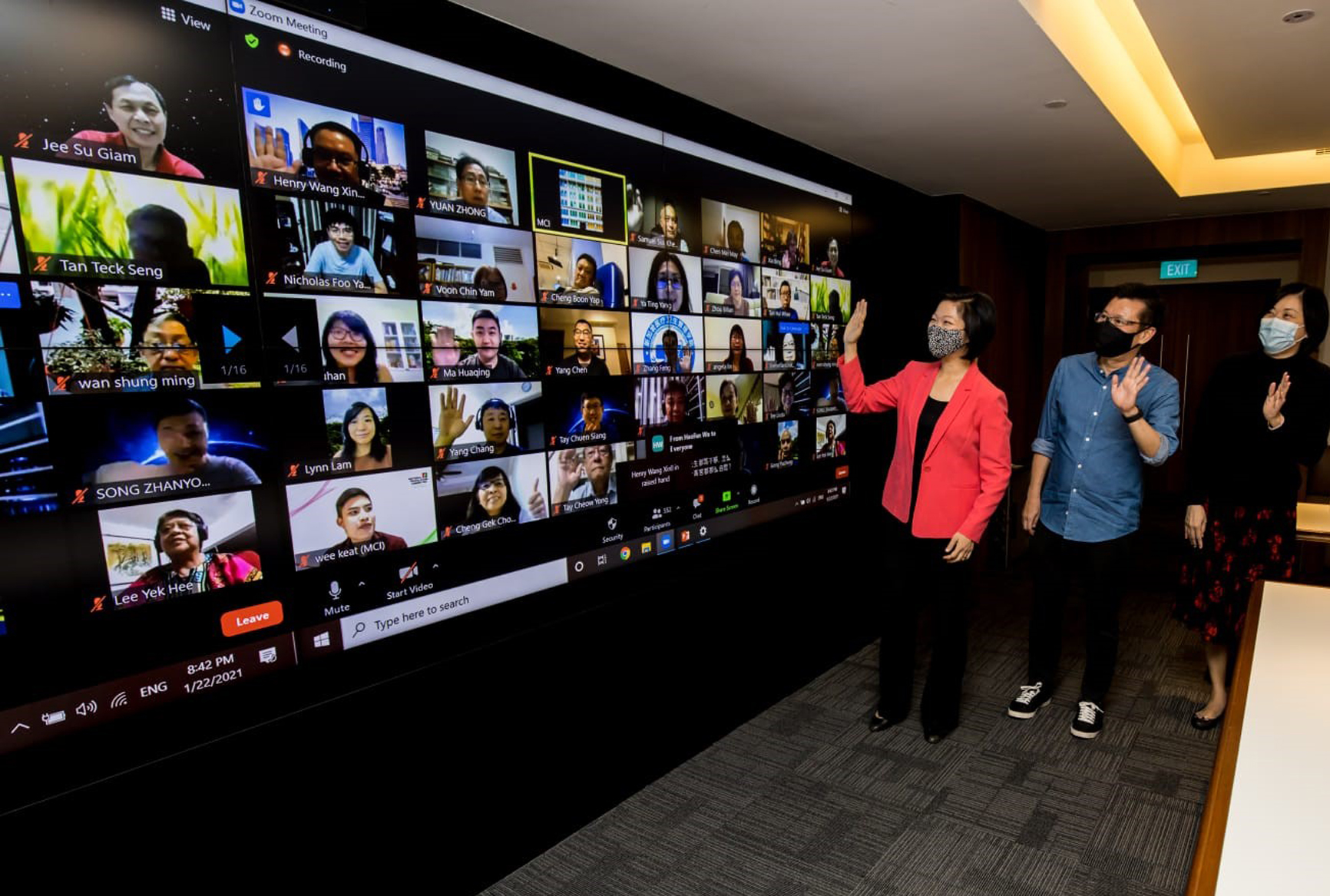Volunteers can help stop S'pore government materials from getting lost in translation
Sign up now: Get ST's newsletters delivered to your inbox

(From left) Senior Minister of State for Communications and Information Ms Sim Ann with National Translation Committee members Mr Goh Sin Teck and Ms Sim Wan Hui.
PHOTO: MINISTRY OF COMMUNICATIONS AND INFORMATION
Yuen Sin
Follow topic:
SINGAPORE - Harnessing the expertise of citizen translators could help to make government materials more accessible to Singapore's main communities, Senior Minister of State for Communications and Information Sim Ann said on Friday (Jan 22).
Feedback and suggestions from the public could boost the amount of high-quality translations provided in languages such as Mandarin, Malay and Tamil.
"If government agencies think that they should be scaling back on translation efforts in order to avoid making mistakes, this will leave the Mandarin, Malay and Tamil-speaking communities worse off," Ms Sim told more than 630 participants at a virtual dialogue.
"Instead, I hope that they will be able to gain more confidence in carrying out such work, and to have more resources, encouragement and support (from the public) to do so."
The dialogue is the first of two sessions on translation-related issues that will be held this month.
Ms Sim elaborated on a project to engage more members of the public as volunteer citizen translators. They will be invited to help identify errors in government communication materials and provide suggestions to refine translations.
In time, they will also be able to help to vet and proof-read communication materials using the upcoming SG Translate Together portal, said the Ministry of Communications and Information. Materials to be translated can be posted on the site.
It will also allow volunteers to help to improve the SGTranslate engine, which uses artificial intelligence to translate specific local terms such as Pioneer Generation.
"This project aims to create more opportunities for collaboration and engagement between the government, community partners and stakeholders within the translation community," said the ministry.
Asked how citizens could contribute, Ms Sim said she hoped the volume of translated material available to the public could be increased, possibly by using the expertise of volunteers or professional translators.
This could include, for instance, providing responses in vernacular languages when people write to agencies such as the Municipal Services Office with feedback or enquiries about issues. This is currently not something that can be done due to resource constraints, given that the translated material is not distributed to a mass audience, Ms Sim noted.
Higher education administrative officer Eng Yu Fan, 28, who attended the dialogue, said he was interested in signing up as a citizen translator. There were more issues that would need to be addressed, he said, such as how translation should accommodate citizens who come from different cultural backgrounds despite using the same language.
"If you want to help all citizens understand a term, we need to find a common denominator that everyone will be able to understand," he told ST.
Other participants asked whether terms more commonly used in the local context should be included in translated material, as opposed to those used in China, for instance. Ms Sim said the focus should be on whether terms are understood by the masses here.
Those who are interested in becoming citizen translators can sign up at this website.
Another dialogue session with the Malay and Tamil-speaking communities will be held on Zoom on Tuesday (Jan 26).

